The Cadillac backed out of the garage after a two-minute stay and rolled away.
The hearse had crossed into New Jersey and had turned south on I-95.
Twenty minutes later a pickup truck drove into the garage. “Paul Curry,” Orish said. Wrinkles appeared on her forehead. “I know that name. I think he might be . . .”
A computer operator said, “He might be the one. He’s been inside four times, twice for dope, once for ag assault, once for criminal sexual assault. He’s fifty-two, one more big bust and he goes away forever.”
“Anything on his family?” Kerry asked.
The operator rattled some keys and then said, “Married, two children in their twenties.”
“The problem is, if he flips on Sansone, Sansone’s people could take it out on his family, even if Curry and his wife are in witness protection,” Devlin said. “Of course, being an asshole, maybe he wouldn’t care.”
“But he’s another possible,” Lucas said. “Let’s start digging on him. Find out where he’s going, where he has the dope.”
“Crank up an entry team?” Orish asked.
“Not yet,” Lucas said. “Let’s just track him.”
They tracked him to a neighborhood called New Dorp, south and east of the car wash.
“We got another one. They’re starting to come in,” the surveillance operator said.
They went to look: a black five-liter Mustang. The tag went out to a Kent Pruitt, and when they looked, they found a complicated rap sheet that involved drug sales, burglaries both alleged and proven, and three alleged sexual assaults, a guilty plea on one with the other two nol-prossed. “Prosecutor traded a guilty plea for the nol-prosses,” Kerry said.
They all read through the rap sheet and Lucas pointed at the bottom of the computer screen: “Look at this. He was a witness in a rape trial. Actually, if I’m reading this right, it looks like he was a victim of a rapist, while he was in prison. He will not want to go back. If we hit him for anything heavy, like possession of a kilo of heroin, he’ll be going back forever.”
“Attention, people,” Orish said to the group, clapping her hands twice. “We’ve got a live one. We need everything we can get on this Pruitt. We need to move three cars and box him, don’t lose him. He could be our man.”
The surveillance teams tracked Pruitt to a house that was owned by a Kills Realty, which apparently specialized in rental management. The trackers watched, but Pruitt didn’t immediately reemerge.
Orish wanted to watch for more prime distributors and Lucas agreed with that, but suggested that she was unlikely to find somebody better than Pruitt. “Devlin and I will pick him up,” Lucas said. “You need to have someone good at interrogation, I think in Manhattan—and we don’t take that ferry over there, we drive him. We don’t want anyone to see his face after we have him in a car.”
“We feel one of our teams would be better,” Orish said.
Lucas shook his head. “Look. You guys do a mountain of research and you’re really good at that, but you do two kinds of arrests. One is, you send in a SWAT team, knock down all the doors, and pile on top of people; the other is more like a party. You all show up wearing your FBI vests and you seize all the file cabinets. And that’s fine, you do it well. Us marshals arrest individual fugitives. That’s what this is going to be: we can’t have any excitement at all. Devlin and I will sort of amble up to him and ask for a light and tell him he’s under arrest and if he resists we’ll beat the shit out of him, in a hurry. Mug him. That’s what we do. That’s what we need in this situation.”
“If it goes wrong?”
“That’s where you come in. We’ll want surveillance watching us with some of your people ready to jump, if it all goes to hell. But it won’t. We’ll take him, and nobody will know except us chickens.”
“I’ll talk with the AIC,” Orish said. “We need to clear it.”
“Clear it, then. Tell the AIC to have a chat with Louis Mallard before he makes a decision,” Lucas said. “By the way, we’re going to need a warrant to go into Pruitt’s house after we crack him, and we’ll need at least some surveillance all day today. We need to know how many people are in the house, whether there are any children, whether there’s a back way out, and all that.”
“All day? When are you planning to take him?” Kerry asked.
“Tonight, after dark. We really don’t want people looking at us. People of the drug-buying variety. They can smell a cop at a hundred yards.”
“Let me talk with the AIC,” Orish repeated.
“Fine. In the meantime, let’s get the guy who brought us in here yesterday—Koch? I want to go down and take a look at Pruitt’s place, and the neighborhood.”
Orish went off somewhere to consult with the Manhattan agent in charge while Lucas and Devlin took the elevator down to the lobby, where they met Dillon Koch. “I have the address,” Koch said. “It’s a neighborhood called Westerleigh. Wester-lay or Wester-lee, I don’t know if I’m pronouncing it right. It’s eight or ten minutes from here.”
The cold hit them when they left the building—something in the low twenties, Lucas thought, and windy. Little mean snaps of snow, more pellet than flake, stung their faces.
Devlin kept his head down into the wind, and Lucas said, “Not something you get much of in Louisiana, huh? The cold.”
“Not like this. But this isn’t terrible.”
Lucas disagreed: “It’s on the edge of terrible and would be even in Minnesota.”
Westerleigh turned out to be an older neighborhood, mostly prewar and World War II–era two-story houses, painted in pastel shades, and remodeled and remodeled over again. They sat on heavily patched blacktopped streets with mature trees and on-street parking everywhere. Narrow driveways separated the houses, reaching back to single-car garages. Lawns were short and narrow with spotty, dirty snow. The neighborhood reminded Lucas of any number of neighborhoods in the Twin Cities, not far from his own.
Pruitt lived in an old gray house with red shutters and a heavily scarred maple tree on the front boulevard; as with most houses on the street, a tight driveway led to a small garage. Pruitt’s Mustang sat in the driveway next to the house.
“Gonna be hard to keep too close an eye on this place,” Lucas said, as they cruised the house. “Narrow street, if anyone sits in a car too long, the neighbors will spot them.”
Koch pointed at a Chevy van a block up the street. “That’s ours. One guy, he’s now in the back.”
The sign on the side of the van said dave’s remodeling and repair, with a New York phone number beneath it. “Only problem is that it’s a Manhattan number,” Koch said. “That might raise an eyebrow, if anybody really paid attention.”
“Somebody watching the back?” Lucas asked.
“Yes. Same deal. Parked van.”
Satisfied with the watch, and the neighborhood, they went back to the Hilton and up to the task force suite, where Orish told him, “It’s your bust. We’ll do the backup. Nobody’s come or gone from the place except Pruitt. He’s there now.”
“We saw his car,” Lucas said, as he peeled off his overcoat. “Do we know any more about him?”
“No. Nobody really pays any attention to him. He has a day job with—guess who?”
“Sansone?”
“There you go—he’s supposedly a baker at one of the donut shops. That’s probably a cover. He’s still on parole, he reports in to his PO once a month, clean reports so far. He originally got a job as a house cleaner after he got out of Greene Correctional Facility.”
There were several online photos, both from Pruitt’s arrest records and prison days, and from his driver’s licenses. He was a thin man of medium height, going bald, dark questioning eyes, large nose, and large ears.
Читать дальше
![Джон Сэндфорд Ocean Prey [calibre] обложка книги](/books/384313/dzhon-sendford-ocean-prey-calibre-cover.webp)
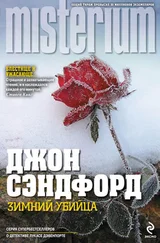


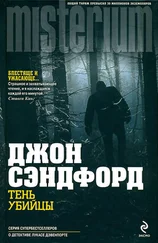
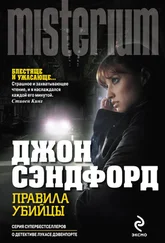
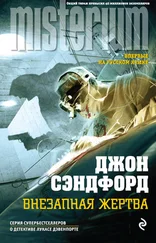
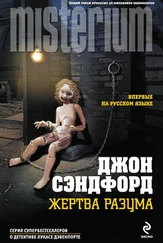
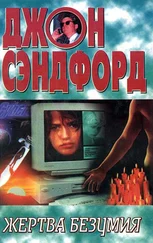


![Джон Ирвинг - Viename asmenyje [calibre]](/books/384315/dzhon-irving-viename-asmenyje-calibre-thumb.webp)
![Джон Ирвинг - Vandens metodas [calibre]](/books/384316/dzhon-irving-vandens-metodas-calibre-thumb.webp)